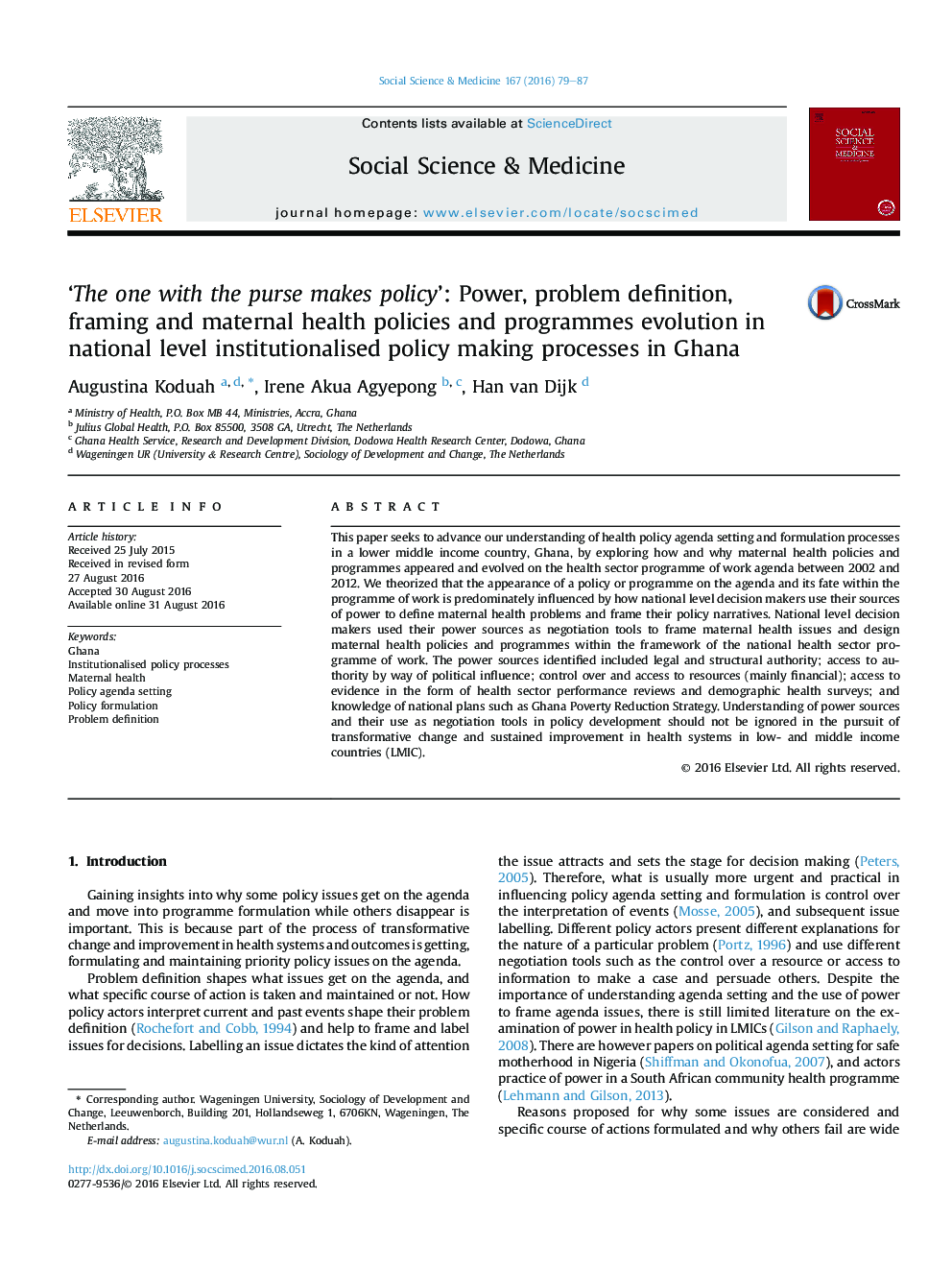| کد مقاله | کد نشریه | سال انتشار | مقاله انگلیسی | نسخه تمام متن |
|---|---|---|---|---|
| 5046949 | 1476002 | 2016 | 9 صفحه PDF | دانلود رایگان |

- Power relations steer the Ghanaian institutionalised health dialogue.
- Use of power to persuade others influences how maternal health agenda issues evolved.
- Control of budget allocation is an important source of power to influence decisions.
- Understanding of actors' power and how they use them in policy development is vital.
This paper seeks to advance our understanding of health policy agenda setting and formulation processes in a lower middle income country, Ghana, by exploring how and why maternal health policies and programmes appeared and evolved on the health sector programme of work agenda between 2002 and 2012. We theorized that the appearance of a policy or programme on the agenda and its fate within the programme of work is predominately influenced by how national level decision makers use their sources of power to define maternal health problems and frame their policy narratives. National level decision makers used their power sources as negotiation tools to frame maternal health issues and design maternal health policies and programmes within the framework of the national health sector programme of work. The power sources identified included legal and structural authority; access to authority by way of political influence; control over and access to resources (mainly financial); access to evidence in the form of health sector performance reviews and demographic health surveys; and knowledge of national plans such as Ghana Poverty Reduction Strategy. Understanding of power sources and their use as negotiation tools in policy development should not be ignored in the pursuit of transformative change and sustained improvement in health systems in low- and middle income countries (LMIC).
Journal: Social Science & Medicine - Volume 167, October 2016, Pages 79-87